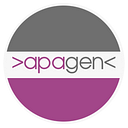Features Of Manufacturing ERP Software
Manufacturing ERP systems offer a broad range of features and functionalities to enhance all enterprise functions.
Here’s is the checklist of key capabilities of manufacturing ERP solutions:
- Inventory Management
- Compliance And Risk Management
- Quality Control
- Process Automation
- Requirement Planning And Management
- Distribution And Supply Chain Management
- Asset Management
- Finance And Accounting
Let’s discover how these manufacturing ERP features assist a company fast-track its development.
Inventory Management:
It is very important for manufacturing corporations to handle inventory successfully. Inventory management includes understanding your inventory, product status, raw materials management, completed products, purchase order monitoring, and overall management. Modern manufacturing ERP systems embrace major strategies for stock management, just-in-time, and material requirement planning (MRP) that assist in effectively streamline inventories.
Compliance And Risk Management:
There isn’t any need to make use of another software to manage risk and compliance when you have ERP in place. ERP solutions include this feature to maintain track of all the various compliance and laws associated to your enterprise. Today’s ERP systems are built with such compliance and regulation issues to assist manage environmental, information safety, and human resource regulations at each stage.
Quality Control:
Quality management refers to a set of standards that guarantee a manufactured product meets high quality objectives outlined by the group. The product had to be thoroughly examined and tested as part of quality assurance. ERP software for manufacturing helps to track and monitor various processes related to high quality management via alert mechanisms and monitoring at each level.
Process Automation:
Technology makes it easier to automate everyday processes and thereby saves man-hours with nearly no chance of human errors. Manufacturing ERP provides complete process automation that integrates various processes similar to sales, purchase records, inventory, human resources, and so forth. Automation not only saves time however permits organizations to access real-time data and have higher management.
Requirement Planning And Management:
Manufacturing enterprise needs correct requirement planning so that they will fulfill all manufacturing needs. An best ERP for manufacturing provides real-time data administration and centralized data storage to forecast the demands and production necessities. Multi-level process management ensures there’s enough material and resources are available to satisfy demands. Today’s ERP system helps corporations better forecast demands and manage resources that get rid of waste and meet sales needs.
Distribution And Supply Chain Management:
For multi-store manufacturers and retail chain companies, distribution and provide chain management manages numerous elements similar to packaging, warehousing, logistics, level of sale, vendors, and suppliers. Effective distribution and supply chain management process is essential for a corporation’s longevity and development.
Asset Management:
An excellent manufacturing ERP solution offers customers with an asset management module that manages the manufacturing unit’s physical assets and tools. This helps firms cut back risk and value and enhance uptime and productivity.
Finance And Accounting:
From top-floor to shop-floor, ERP techniques for manufacturing offer complete management of the whole enterprise. With numerous reports and BI-integrated systems, the accounting and finance module keeps monitor of each financial activity, transaction, and documentation. This allows prime management to accurately monitor the method and plan future strategies.
ERP for manufacturing systems could be customized as per organizations’ necessities where you’ll be able to add/remove features as per the needs.
Let’s see how ERP manufacturing systems profit manufacturers:
Advantages Of Odoo ERP For Manufacturing Industries:
- Enhanced stock, supply chain, distribution, and warehouse administration
- Automated processes that enhance effectivity and save time
- Integrated and complete software that unifies all various modules of manufacturing companies
- Real-time reporting and dashboards that assist make better decisions timely
- Optimized manufacturing operations and processes for better management
- Increased visibility of workflow and gain 360-degree view of enterprise
- Ultimately helps enhance customer satisfaction and customer companies
- Quick decision of any challenge with superior alert administration and collaboration
- Better adherence to compliance and regulatory standards
- Mitigate risks and reduce redundancy and human errors
- Accurate demand forecasting via advanced analytics and BI
- Access to real-time data for sooner and efficient decision-making
- Improved quality management and streamlined operations throughout the corporate
- Well-defined product life-cycle management
- Increased productivity and better management that end in happier clients and workers
- Respond to market adjustments and situations shortly than ever
- Reduced price and operational overhead of utilizing a number of software
- Role-based access to data and centralized data storage
A manufacturing ERP ensures adaptability and flexibility that assist corporations to adapt to the adjustments, enabling them to realize a aggressive benefit. Let’s see various kinds of manufacturing ERP solution.
Best ERP For Manufacturing
Generally, there are two kinds of ERP software, custom ERP, and off-the-shelf ERP. When it involves manufacturing, there are various kinds of ERP solutions that embrace discrete manufacturing ERP, process manufacturing ERP software, and mixed-mode manufacturing ERP software.
The finest ERP is the one that fulfil your business needs. There are many various deployment and setup choices accessible in the present day that are vary primarily based on measurement, features, and necessities.
An on-premise ERP system is hosted locally in your systems and gives full control, management, and ownership of the system. Hardware and system infrastructure would need to be managed. It comes with its personal pros and cons.
Cloud ERP is a perfect match and one of many popular types the place your ERP system runs on a vendor’s cloud platform. It gives scalability, agility, and good accessibility in comparison with on-premise software program. Cloud ERP saves your time and cash by providing ERP software program deployed “as a service” within the cloud.
Hybrid ERP gives a mixture of each the choices, cloud and on-premise ERP. It permits organizations emigrate between choices and leverage the very best of each worlds in order to develop enterprise.
